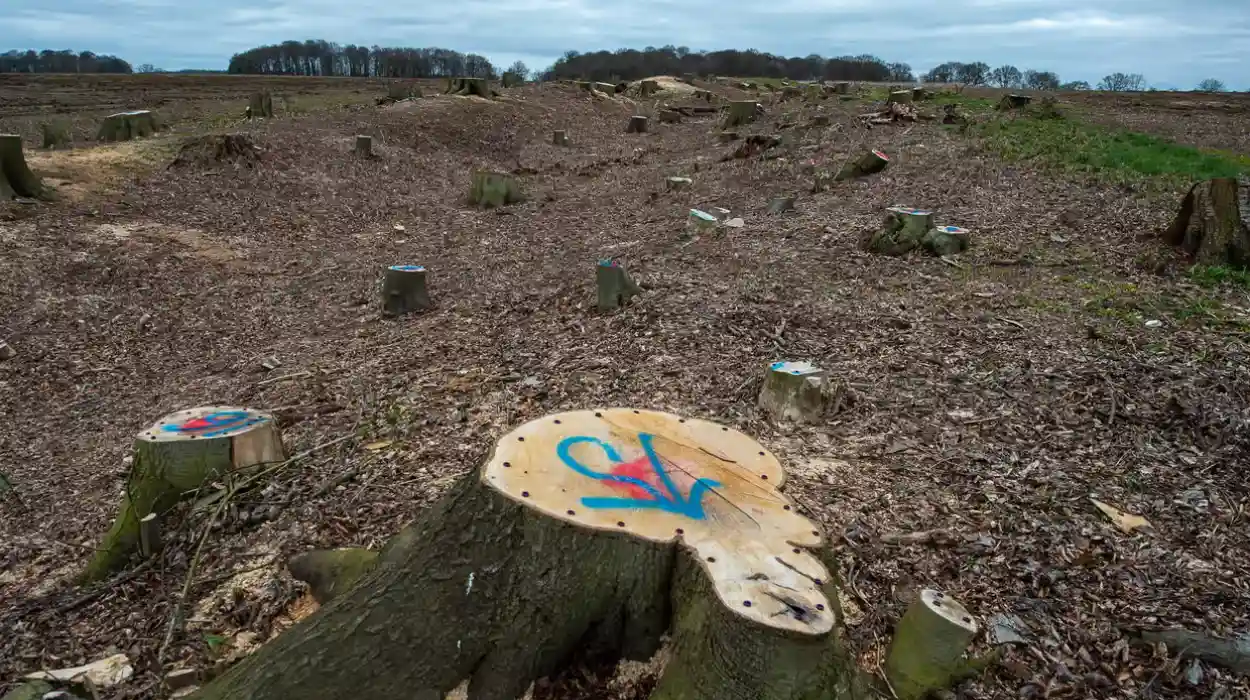UK (Parliament Politics Magazine) – Economists and ecologists urged MPs to amend the planning bill, claiming the “nature levy” lets developers bypass environmental laws, harming ecosystems.
As reported by The Guardian, top economists and environmentalists are calling for changes to the government’s planning bill, claiming it creates a “license to harm nature.”
Who wrote the letter to MPs raising concerns over the planning bill?
- Sir Partha Dasgupta, economics professor emeritus at Cambridge
- Sir John Lawton, prominent professor of ecology
- Dr. Tom Tew, former chief scientist of Natural England
These experts have written a letter to MPs, warning against the government’s false claims that nature and wildlife hinder economic progress.
What did experts warn in a letter to MPs regarding the planning bill?
According to the letter, part three of the planning and infrastructure bill, mainly relevant to England and Wales, allows developers to pay “cash to trash” the economy and wildlife.
Experts argue that the bill allows companies to bypass environmental rules by paying into a national nature fund.
The letter stated,
“It is a blunt instrument that rewards bad planning and penalises good practice, all the while adding cost and delay to the planning and development process.”
The letter to MPs, scheduled to begin reviewing the bill on Thursday, claims that
“The nature levy is not a tool for ecological recovery but a licence to kill nature, with no evidence suggesting it would benefit the economy.”
The signatories are urging that the section be eliminated and undergo proper review and consultation.
According to the letter, part three of the bill creates a conflict of interest for Natural England. The organization would be responsible for reviewing conservation plans while relying on the new nature levy for funding.
The signatories said,
“In our collective experience, delays are driven by under-resourced planning authorities, infrastructure bottlenecks, and industry-led viability constraints. Environmental licensing, when done well, is not the problem.”
What did Dasgupta say about the nature levy and its impact on economic growth?
Sir Dasgupta explained that the nature levy enables firms to “buy out” of their nature obligations, bypassing decades of environmental regulations.
He argued that the levy would not speed up planning; instead, it would hinder economic growth.
Mr Dasgupta stated,
“Part three of the bill will cause economic harm by introducing overlapping and clashing nature laws, and slowing development with complex viability-based levy systems that critically undermine the investment case for nature in the UK.”
He stated that the nature is essential to economic and well-being, and its decline poses a threat.
What did Prof David Hill say about the government’s approach to environmental protection?
Prof David Hill, a signatory to the letter, condemned the government’s approach to environmental laws, stating,
“I cannot believe we have come to this position. Under the watch of previous governments, the debate had always been around how far we should progress to increase protection and funding for nature and green growth.”
Mr Hill indeed,
“Now regressive laws are being quietly accelerated through parliament with no public consultation, impact assessments or pilots. Part three of the bill harms our economy, rather than helps it, and will deliver a profoundly unacceptable blow to our natural environment, which, unlike the economy, may never recover.”
What did Richard Benwell say about the planning bill and its impact on nature?
Richard Benwell, the chief executive of Wildlife and Countryside Link, stated,
“The government is right that a win-win is possible for nature and development, but the planning bill is completely one-sided. It throws environmental protection to the wind, with little to offer future generations or communities fearful for the future of nature.”
He added,
“It would leave vulnerable species and irreplaceable habitats like chalk streams and ancient woodlands more exposed than ever to unsustainable development. Promises of nature recovery efforts in return are thin and uncertain.”
What did Craig Bennett say about the safeguards for nature in the planning and infrastructure bill?
Craig Bennett, the chief executive of the Wildlife Trusts, said,
“As it stands, the limited safeguards for nature in the planning and infrastructure bill merely undermine nature protection laws and threaten the constructive dialogue of the Wildlife Trusts and environmental groups with Defra [the Department for Environment, Food and Rural Affairs] and the Ministry of Housing, Communities and Local Government.”
Key points in the UK Planning and Infrastructure bill
- Faster approvals for major projects by streamlining consultations and updating National Policy Statements every 5 years.
- Shift from “first come, first served” to “first ready, first connected” for electricity projects.
- Financial incentives (cap-and-floor) for long-duration energy storage to support renewables.
- Up to £2,500 bill discounts for households near new electricity transmission infrastructure.
- Extended commissioning period (18 → 27 months) for smoother project handovers.
- Allows renewable energy projects (solar, wind) on forestry land.
- Temporary land possession, faster objections process, and cost recovery for consultees.
- Mandatory sub-regional plans (SDS) for housing and infrastructure coordination.
- Simplified approvals for railways/tramways with statutory deadlines.
- Faster rollout by replacing street works licenses with permits.
- Mandatory training for planning committee members and clearer delegation rules.


